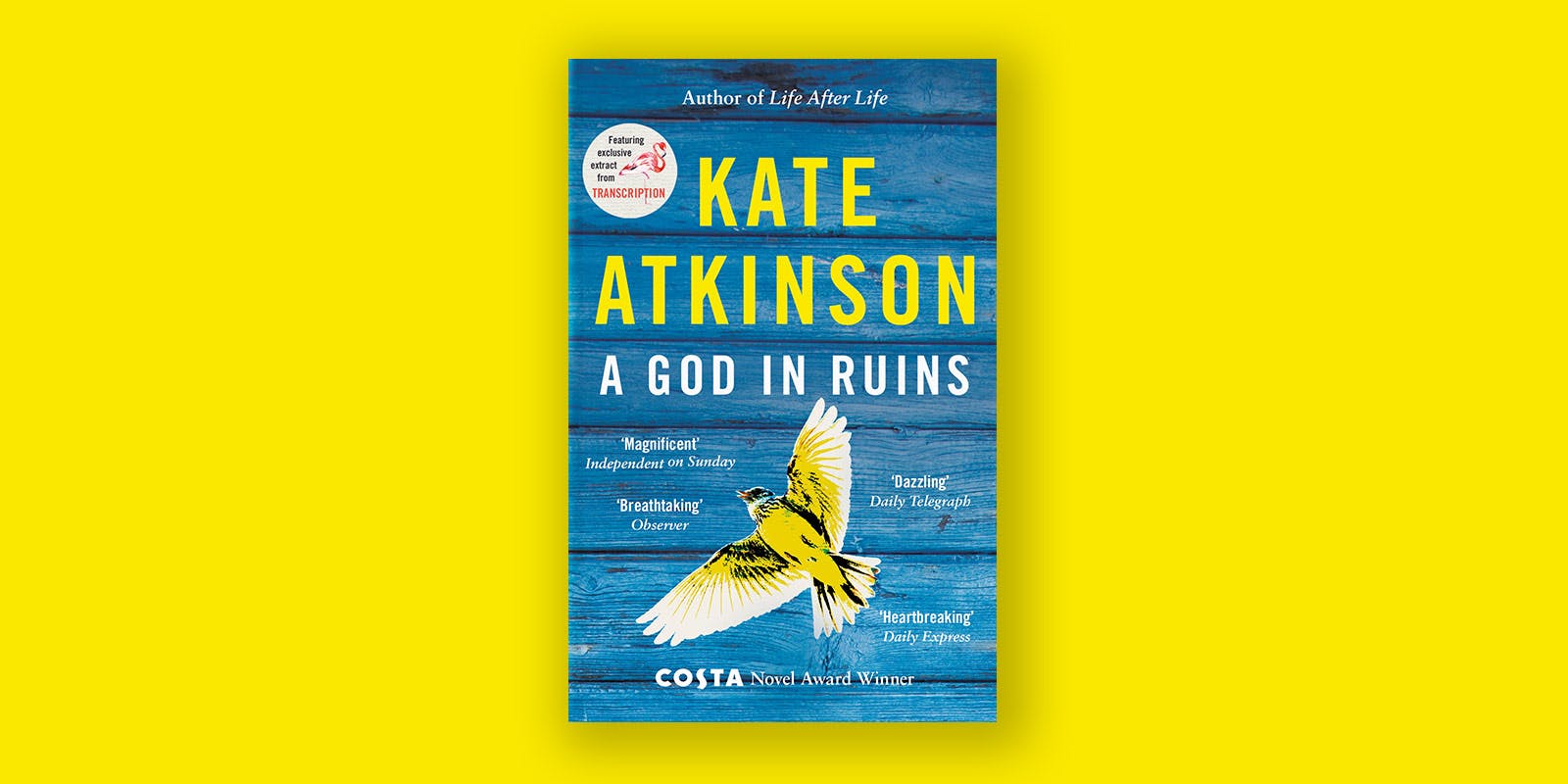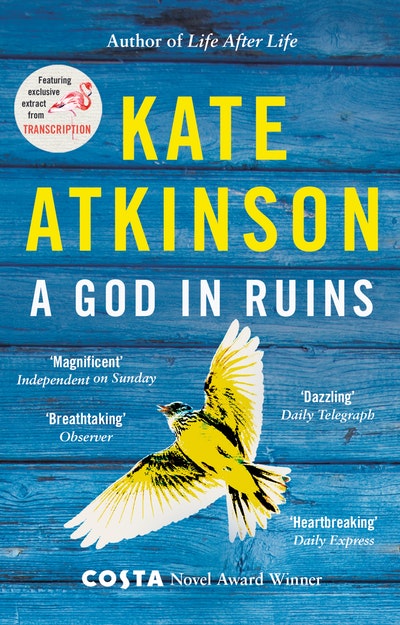Reading group discussion notes for A God in Ruins by Kate Atkinson.
Kate Atkinson’s dazzling Life after Life, explored the possibility of infinite chances, as Ursula Todd lived through the turbulent events of the last century again and again. In A God in Ruins, Atkinson turns her focus on Ursula’s beloved younger brother Teddy – would-be poet, RAF bomber pilot, husband and father – as he navigates the perils and progress of the 20th century.
*Spoiler Alert: We recommend reading the book before reading the questions below.
Reading Group Questions
- ‘But it wasn’t just the bird, was it, Teddy thought as he lay in bed waiting for sleep to find him, the nightly oblivion kept at bay by meandering thought. It wasn’t just the one lark that had been silenced by Izzie. (A mouthful.) It was the generations of birds that would have come after it and now would never be born. All those beautiful songs that would never be sung.’ In A God in Ruins, how do you feel about the attitude to war and its effect on a generation of young men?
- ‘If Viola could start again – there are no second chances, life’s not a rehearsal, blah, blah, blah – yes, but if she could, if she could re-take the journey that wasn’t really a journey what would she do? She would learn how to love.’ What do you think about Viola as a character? Can you understand why she acts the way she does?
- In Life after Life, Ursula’s story was told over and over again, like a literary version of the film Ground Hog Day. In A God in Ruins, Kate Atkinson tells Ursula’s brother Teddy’s story with a more straightforward chronological timeframe, even though the narrative dips backwards and forwards in time. Why do you think Kate Atkinson chose to tell these two sides of the Todd family’s story in such different ways? What do you see as the similarities or differences between the two books ?
- ‘The bottom line is that war is savage. For everyone. Innocent or guilty.’ The strategy of Bomber Command, to bomb civilian cities in Germany at the end of the war, has always been controversial – did reading A God in Ruins make you reflect about whether you felt it was morally justified?
- There are several generations of the Todd family in A God in Ruins, from Sylvie and Hugh, and Teddy and Nancy, to Viola and Dominic. What do you think Kate Atkinson shows us in the novel about the variations of the experience of marriage and parenthood in one single family?
- ‘The war now for him was a jumble of random images that haunted his sleeping self - the Alps in moonlight, a propeller blade flying through the air, a face, pale in the water. Well, good luck to you then. Sometimes the overwhelming stench of lilacs, at other times a sweetly-held dance tune.’ Did you notice how Kate Atkinson gives texture to the novel by describing scents, colours, sounds, nature, music? How did that affect your reading experience?
- During a bombing raid, Teddy vows to himself that if he does manage to survive the war, he will always try to be kind. How successful do you feel he is at this?
- In the Author’s Note, Kate Atkinson refers to the ‘great conceit’ at the heart of the book, which is of course only revealed at the end. How did you react to this revelation?
- In the postscript, Kate Atkinson writes, ‘Personally I think that all novels are not only fiction, but they are about fiction too.’
- Does this novel make you think differently about the art of fiction?













